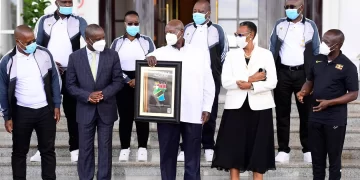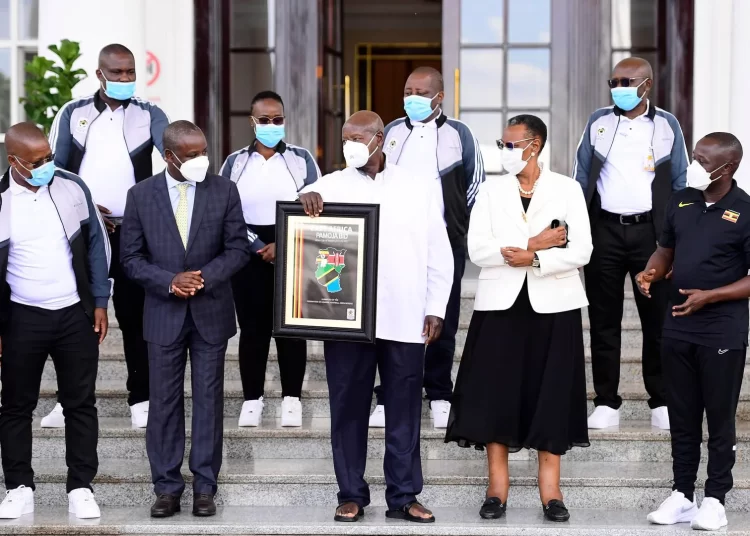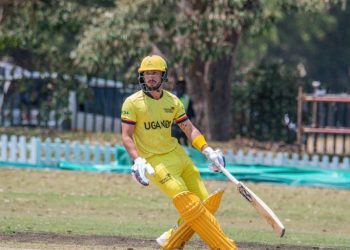OPINION
In a week of Independence Day celebrations for several Ugandans, I found it quite fitting to reflect on the recent successful bid to host the Africa Cup of Nations (AFCON) tournament in 2027 by three East African nations Uganda, Kenya, and Tanzania, announced on 27th September 2023. Sudan in the inaugural tournament in 1957 and later in 1970, and Ethiopia in 1962, 1968 and finally 1976, is the closest the tournament has been staged in the Eastern region of Africa. It will be 51 years when the kick-off whistle goes in either Kampala, Nairobi, or Dodoma in 2027; five decades of patiently waiting for the grand continental showpiece to be played in the Eastern part of the continent.
The announcement was greeted with mixed emotions in Kampala. From images of the Deputy Speaker, the FUFA President and Minister of State for Sports bear hugging, and unleashing dance strokes last seen in 1976 when the tournament last touched our shores, to a social media meme campaign portraying Uganda as the last place this tournament should be, and as expected, the moralist lecturing on loving our dear country. I was left engulfed in a zone of disconnect and emotional numbness.
Not so far back in our history Uganda had the honour to host the Commonwealth Heads of Government Meeting (CHOGM); in November 2007 to be precise. A lucrative event that was portrayed as an opportunity for the country to grow its infrastructure including roads and hotels, boost its tourism numbers by showcasing our biodiversity and climate, and perhaps an opportunity for an employment boost with the different expanding sectors. What followed instead were corruption scandals and scrambling and partitioning of wealth for those well connected, ending with the recent foreclosure of the Aya Group’s Pearl of Africa Hotel, a supposed symbol of all the development we had hoped for. I mention all this to give context for the upcoming football exhibition in 2027.
Morocco on the same day were also announced as the hosts for the 2025 edition for the first time since 1988. From defying the odds to reach a men’s World Cup semi-final-the first for any African nation, to reaching the finals of the Women’s Africa Cup of Nations, club side AS FAR winning the CAF Women’s Champions League title on home soil, and finally Wydad Casablanca’s success in the CAF Champions League, 2022 was particularly successful for Moroccan soccer on the pitch. The crowning moment a year later, as 2025 AFCON hosts and subsequently 2030 FIFA World cup joint hosts was fully deserved.
That success, however, did not come overnight. The country has spent years investing in modern sports infrastructure. It now boasts of six FIFA approved stadiums. Since 2014, the Royal Moroccan Football Federation (FRMF), through its President Fouzi Lekjaa, put in place a real strategy for the development of the sport. The Royal Kingdom of Morocco now has more than 20 international stadia (natural grass), over 200 synthetic turf fields that meet international standards with adequate lighting, and five regional training centers including the famous Mohammed VI Football Complex.
On the other hand, the elite clubs are being transformed into limited companies and have been placed under the supervision of the National Directorate of Control and Management. The FRMF provides each first division club with an annual subsidy of approximately 600,000 euros with extra financial aid and support given to all clubs participating in continental competitions.
The FRMF has also put the training of players at the heart of the development of national soccer with clubs such as Raja Casablanca, FUS Rabat and RS Berkane establishing quality training centers which have enabled them to rely on a pool of homegrown talent. The FRMF has also focused its strategy on promoting the training of managers, including coaches, but also medical staff and referees. It is this strategy that has allowed the Moroccan championship, the Botola Pro, to become the number 1 ranked league in Africa, since 2020 to date, with 3 clubs in the top 10 in Africa. In the 2019-2020 season for instance, four of the eight semi-finalists of the two club continental tournaments, the CAF Champions League and the CAF Confederations Cup were from the Botola.
Morocco also became the first African country to win two consecutive African Nations Championship (CHAN) editions, a tournament restricted to local based players, triumphing in the 2018 edition on home soil and 2020 in Cameroon. They also qualified for the 2021 CAF U20 tournament in Mauritania, for the first time in 15 years. Morocco as well, now has the number 1 ranked African Futsal team (8th in the FIFA rankings), with a proud return of trophies including two consecutive AFCON titles with an eye on a hattrick in Mozambique 2024, reigning champion with three consecutive Arab Futsal titles, 1 Confederations Cup and an elimination in the quarterfinals of the last World Cup.
In 2020, two-time UEFA Women’s Champions League winner, Reynald Pedros was hired, illustrating the FRMF’s ambition for women’s soccer. In 2022, under the former French international’s guidance, Morocco hosted for the first time the women’s AFCON with the Atlas Lionesses losing to South Africa’s Banyana Banyana in the final of the competition but booking a ticket to the FIFA Women’s World Cup 2023. The U17 women team had also managed to qualify for the FIFA World Cup 2022 albeit under the guidance of another French coach Anthony Rimasson. The merging of foreign coaches with local grown technicians such as the current men’s national team coach Walid Regragui has been a tremendous success. The FRMF also managed to attract corporate sponsorship including telecom giant Inwi and became the first African nation to use VAR in topflight league games in 2020.
Morocco in all of this have paid a keen eye to building infrastructure, training and equipping coaches and sports personnel, empowering local clubs with financial backing, growing women’s football, attracting corporate sponsorship, and promoting the game at grass root levels including schools to provide a conveyor belt of talent.
Back to East Africa and you quickly realize that Uganda only hosted one of her three home matches in the 2023 AFCON qualifiers, with the other two shifted to Egypt and Cameroon. Ironically the final qualification match, albeit away to Niger, was played in Marrakesh, the fourth largest city in Morocco. Kenya did not participate in the 2023 AFCON qualifying edition as they were serving a FIFA ban for alleged government intervention, leaving only Tanzania of the trio able to host home matches.
Uganda has made some reasonable strides including developing women’s football, with a fully functional 10 team FUFA Women Super League, introducing a futsal league amongst scattered achievements. Youth football remains a work in progress with occasional national team success as witnessed in Mauritania in 2021 fused with The FUFA Juniors League, an experiment yet to draw positive conclusions considering the strain on the under-funded parent clubs and the regular change of the competition’s structure.
Demand for a local coach was briefly quenched with Abdallah Mubiru’s appointment after the ill-advised sacking of Jonathan McKinstry, and the recent wise appointment albeit on interim basis, of Morley Byekwaso. My guess though is his stay will last for the two friendly matches he has been assigned in the current international break. The never-ending expensive renovation of Mandela National Stadium remains a concern, while the projected construction of stadiums in Lira and Hoima by 2027 appears a mirage for now. Local clubs continue to struggle to meet budgets and setting up of infrastructure, with their hope lying in those built by the State. Success for both club and country seems so far away for now.
While Morocco’s journey to hosting the 2025 AFCON started as far back as 2014, and included hosting the CHAN in 2018, the women’s Africa Cup of Nations in 2022 and soon to be repeated in 2024, ours in East Africa is only about to start. With CHOGM-like renewed hope and only four years to kickoff, perhaps our saving grace is the fact that the burden will be shared amongst three nations. Kenya have put a step forward by hosting the CHAN 2024 tournament, a dress rehearsal for their 2027 preparedness. For now, East Africa, tuko Pamoja.





























